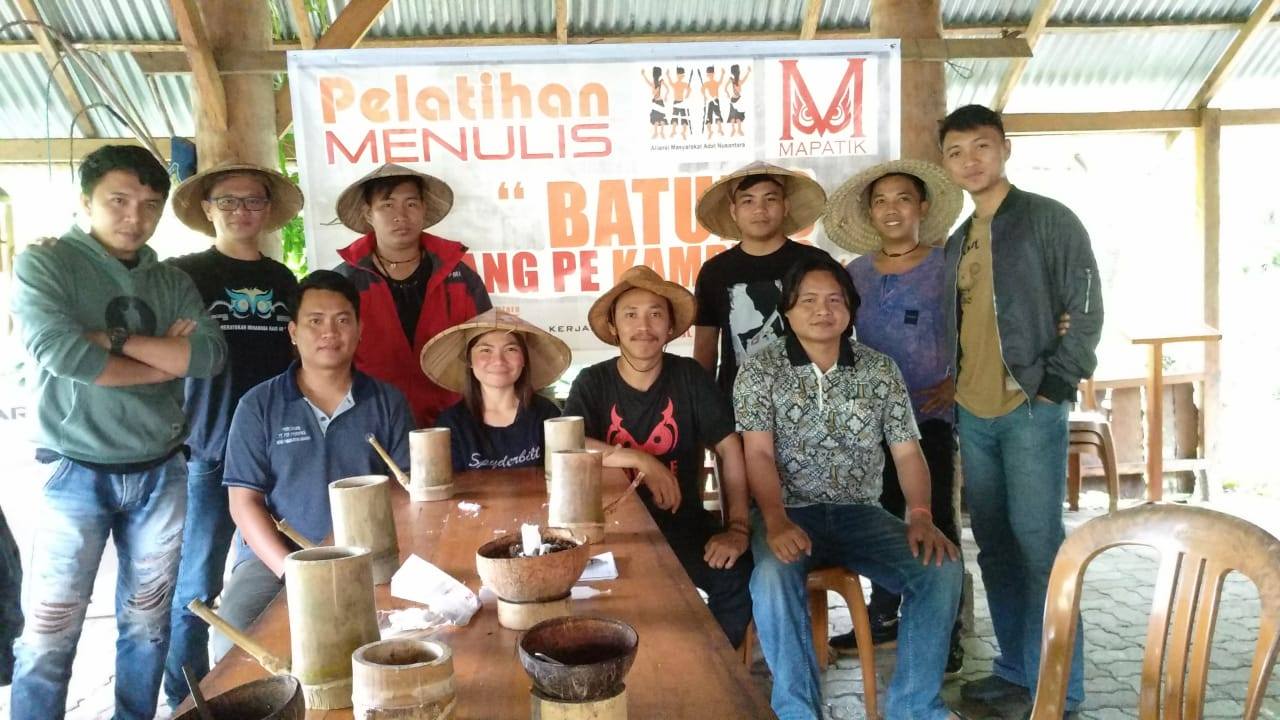To celebrate Indigenous Peoples’ Day 2018 we are showcasing some fantastic work being done by indigenous youth activists around the world.
Meet Kalfein, indigenous youth from Minahasa, Indonesia, after receiving video and storytelling training is now delivering training back to his local community.
What have you been working on?
I organised a writing course in partnership with AMAN and MAPATIK. The participants were selected from different youth communities to represent their villages. A total of 15 young writers and young indigenous people from 9 villages in Minahasa, Indonesia gathered for two days. We gathered with the aim to pass knowledge onto young indigenous members and emerging writers in Minahasa, on documenting their villages’ history.
The workshop was facilitated by Rikson Karundeng, Director of MAPATIK, journalist Arfin Tompodung, historian Bode Talumewo and myself. As writing the history of our village, required knowledge from diverse perspectives. Such as writing a feature of history, in which we took a journalistic style of writing, but mixed it in with a historical approach.
What motivated you to get involved in this activity?
My motivation was an effort to develop our village in our own way. For example, through writing. As I got skills to write, I want to share it with everyone and inspire other youths to scale up our village together. If this effort of building our own village could be done together, it would rise as a movement. Because a rapid change could only be achieved by working hand-in-hand together.
What did you want other youths in the world to do, or to learn with your stories?
Writing is a form of struggle. A struggle against our memories that have aged; likely to forget our own identity, homeland, and rights to live as a human being. Therefore, writing is a very relevant and contextual option that can be used for young indigenous groups to preserve their homeland, culture, and tradition. Also, writing is an effort to deliver knowledge for present and future generations.
Thanks to Elsia Yuanti for pulling this interview together
